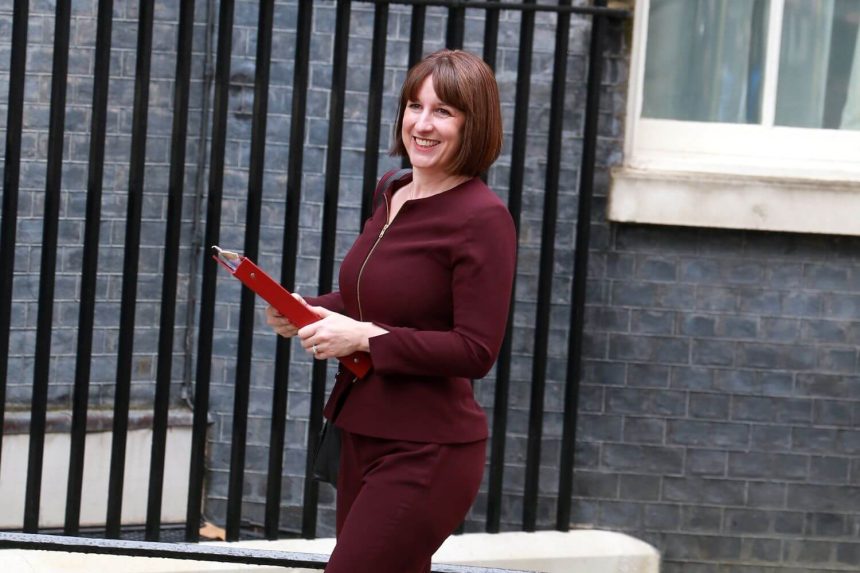A further freeze in fuel duty announced in today’s Budget has been welcomed by coach and bus trade bodies.
Meanwhile, the effect on operators of the increase in employer National Insurance (NI) contributions has been highlighted, although the prospect of funding for hydrogen transport has been taken as a positive.
The earlier-announced extension of the bus fare cap in England to a raised amount of £3 was also part of Chancellor Rachel Reeves’ Budget speech.
Ms Reeves had been widely expected to raise fuel duty for the first time since 2011, but both RHA and the Confederation of Passenger Transport (CPT) warmly greeted the further hold and news that the temporary 5p cut would be extended until 22 March 2026.
RHA, which represents the haulage as well as coach sectors, had campaigned strongly against a rise in fuel duty.
The body’s Managing Director, Richard Smith, says: “Haulage and coach businesses are essential to economic growth. With operating costs increasing, margins tightening and the direct link between higher movement costs and inflation, the last thing these vital businesses needed was a rise in fuel duty.
“Fuel prices continue to put a massive strain on budgets with diesel prices higher here than in any EU member state. More could still be done to support these businesses, the essential users of diesel for whom no other affordable choice of fuel exists. This would go some way to reducing some of the pressures that have driven consumer prices higher.
“The government’s long-term vision for growth cannot be achieved without taking the right steps to support a sector which is crucial to the economic health of the country.
“We’ll continue to engage with decision-makers on solutions and opportunities to support our industry which will deliver wider economic benefit across the UK.”
CPT, which had earlier said a rise in fuel duty combined with a rebate for coach and bus could be beneficial, welcomed the freeze and a pledge to fix an extra one million potholes per year.
Its response centred on the government’s £1 billion package in funding for bus in England outside London, which was announced on Monday and includes provision for the fare cap. Alison Edwards, Director of Policy and External Affairs, says the measure would “safeguard vital routes”.
The rise in employer NI contributions, which was a major headline-grabber in mainstream Budget coverage, is feared by CPT to have the potential to harm coach and bus operators.
However, the government says the impact of this move will be at least countered for small businesses by changes to the Employment Allowance which will leave 865,000
employers having to pay no NI contributions at all.
Ms Edwards says: “The Chancellor’s increase in National Insurance contributions will weigh heavily on bus and coach operators, typically costing £800 a year for each driver.
“This big tax rise will weaken the ability of bus operators to invest in higher frequencies, new routes and modern, environmentally friendly vehicles. And it will hurt coach operators, many of which are small, family owned businesses.”
On the transition to net-zero, Ms Edwards adds: “The prospect of additional funding for hydrogen transport, and zero emission vehicles, is a positive as long as buses and coaches are included.”
Meanwhile, the Association of Local Bus Managers (ALBUM) has been among other bodies adding positive responses to the extension of the fare cap.
A statement from ALBUM ahead of the Budget read: “ALBUM is pleased that there is now more clarity concerning the fare cap scheme, at least for the 14 months until the end of December 2025, which helps customers and bus operators alike.
“Retention of the scheme, albeit at a higher price point, will help preserve the growth in the use of many rural and inter-urban bus services that the fare cap scheme has generated during the last 22 months. This benefits rural bus users, local economies, and SME bus operators providing bus services in rural and inter-urban areas.”
Further, the Urban Transport Group (UTG), spoke of the funding package for bus in its Budget statement, while also alluding to the announcement of an additional £200 million for City Region Sustainable Transport Settlements.
Jason Prince, UTG Director, says: “A ‘billion for buses’ is welcome funding – ensuring earners and learners can get to work and college. Also welcome is the commitment to City Region Sustainable Transport Settlements.
“Alongside greater devolution, these measures will enable our member transport authorities and their Mayors to make the best decisions for their local communities and continue to invest in good transport services and infrastructure.
“We look forward to working with government on the finer details of specific funding arrangements, and to lock in a longer-term revenue and capital funding settlement for local transport at the Spending Review.”



























